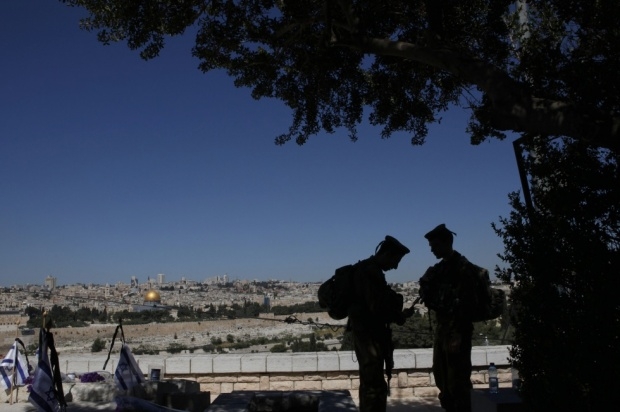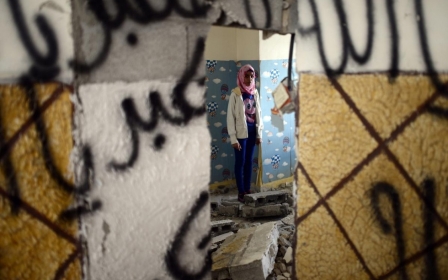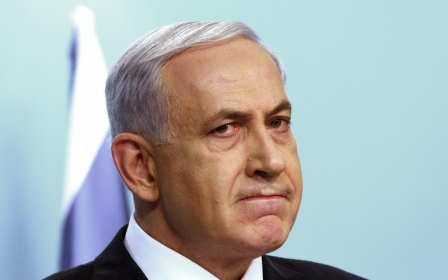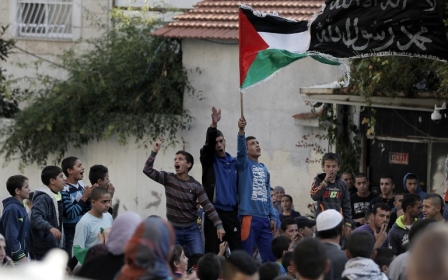Israel fires teargas, rubber bullets to disperse West Bank protests
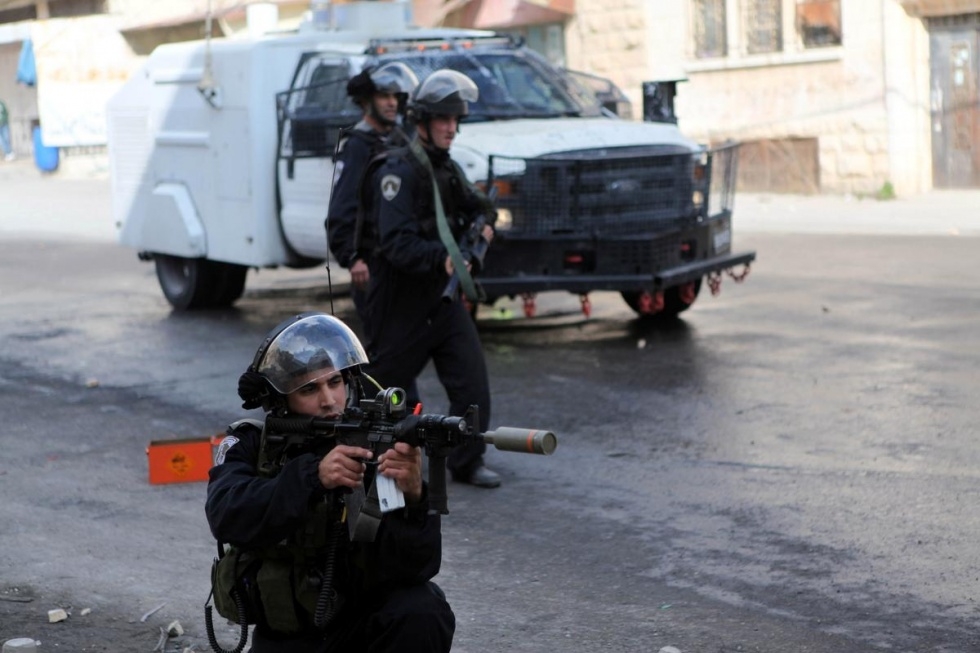
Scores of Palestinians suffered temporary asphyxiation on Friday when Israeli forces dispersed several rallies in the West Bank staged in solidarity with the Al-Aqsa Mosque.
Israeli forces fired teargas and rubber bullets to disperse stone-throwing Palestinians in the West Bank city of Hebron.
Clashes erupted between Palestinian protesters and Israeli forces when the latter attempted to disperse a rally set out from the Qalandia refugee camp, according to an Anadolu Agency reporter.
Similar clashes broke out in in Bethlehem and the Al-Ram village north-east of East Jerusalem.
On Thursday, Hamas called for massive rallies on Friday to protest Israeli "practices" against the Palestinians and holy sites in Jerusalem.
Tension has run high in the West Bank and East Jerusalem in recent months following Israel's 51-day military onslaught on the Gaza Strip in which over 2,160 Palestinians were killed.
Moreover, increasingly frequent intrusions by Jewish settlers and Israeli officials into East Jerusalem's flashpoint Al-Aqsa Mosque compound – along with fresh restrictions on Muslim worshippers at the site – have angered Palestinians and often led to clashes.
Tensions mounted further when Israel temporarily closed the Al-Aqsa Mosque complex in late October following the injury of an extremist rabbi who was shot by a Palestinian man in West Jerusalem.
Since then, six Israelis, including two security personnel, have been killed – and several others injured – in a spate of attacks by Palestinians both inside Israel and in the occupied territories.
Two Israeli settlers injured in seminary stabbing
Meanwhile, two Israeli settlers have been injured in a stabbing in the Beit Orot seminary in Jerusalem’s Mount of Olives, according to Ynet, who described the victims "lightly wounded."
A 24-year-old sustained a stab in the back and a 21-year-old was bruised in the head. Both have been evacuated to the capital's Hadassah University Medical Centre.
The attack marks the latest in a spate of violence in the city coming after the killings of four Israelis in a Jerusalem synagogue on Tuesday.
Two Palestinians also set fire to an army outpost separating a Jewish settlement from the city’s Palestinian residents, though no injuries were reported.
'No intifada' in Jerusalem
Meanwhile, Israeli Defence Minister Moshe Ya'alon has refused to refer to recent attacks by Palestinians in East Jerusalem and the occupied West Bank as a new "intifada" (Arabic for "uprising"), insisting that the attacks had all been "individual terrorist acts."
"The wave of escalations we are witnessing comprises individual terrorist acts," Ya'alon said during a visit to Israeli communities located near the blockaded Gaza Strip, as reported by Israeli public radio on Friday.
"These acts cannot be described as an 'intifada'," he insisted.
Ya'alon vowed that his government would step up its arrest of members of Hamas and other movements in the Palestinian territories, which Israel blames for a series of recent deadly attacks in both Israel and the occupied West Bank.
Over the past 27 years, thousands of Palestinians and hundreds of Israelis have been killed in two major Palestinian uprisings against Israel's decades-long occupation of Palestinian land.
The Second Intifada, which erupted in September 2000, was triggered by a visit to East Jerusalem's Al-Aqsa Mosque complex by controversial Israeli politician Ariel Sharon.
The uprising left some 4,000 Palestinians dead and more than 50,000 injured before petering out in 2005. Over a thousand Israelis were killed over the same period.
New MEE newsletter: Jerusalem Dispatch
Sign up to get the latest insights and analysis on Israel-Palestine, alongside Turkey Unpacked and other MEE newsletters
Middle East Eye delivers independent and unrivalled coverage and analysis of the Middle East, North Africa and beyond. To learn more about republishing this content and the associated fees, please fill out this form. More about MEE can be found here.


